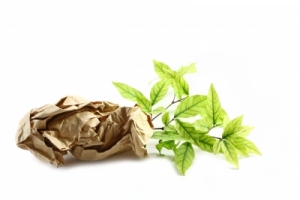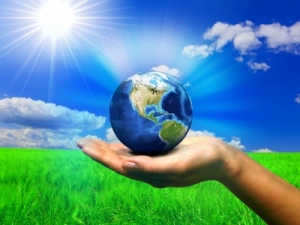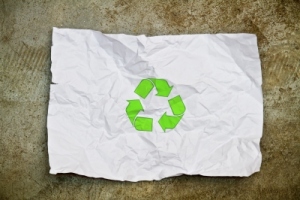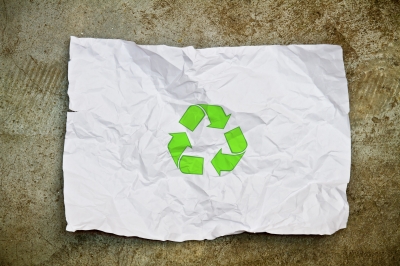Ever wondered what happens after your recycling bins are collected or you drop something off at the recycling centre? No, me either, but I thought it was about time that I learnt exactly what happened to all of my recycling waste.
What do we recycle?
UK households produced 30.5 million tonnes of waste in 2003/04, of which 17% was collected for recycling (source: defra.gov.uk). Although this initially may seem high, this figure is in fact still very low when you compare to some of our neighbouring EU countries, some recycling over 50% of their waste. This means that there is still a mass amount of waste which could be recycled that ends up in landfill sites. Take a look at some of the items that we in the UK recycle:
- All of the UK newspapers manufactured here are now made from 100% recycled paper – wow!
- Over 80% of the glass collected for recycling is used in the UK, the majority of it to make new glass bottles and jars.

Should we export any recyclable material?
This is one debate that has raged over the years, with countries such as China prepared to pay very high prices for recyclables such as waste plastic; mainly because they do not have readily available it would mean that we are bringing in a larger revenue to recycling in the UK. However many argue that even though exporting our recyclables means a bigger recycling loop and more revenue, although because we have to transport the materials in order to recycle them we are still destroying the environment – meaning that we are no better off than if we just recycled the waste in the UK to begin with!
Glass
Glass is an important material when it comes to recycling because it is one of the few substances which can benefit from ‘closed loop recycling’. When recycled, glass returns to the same composition and structure as when it was first manufactured. This means that the glass can be recycled over and over and still retain the same high quality – it is one of the only material in the world that can do this! From glass windows, to bottles to even engraved glass awards – they can all be melted down and rebuilt into more glass bottles, jars and awards!
Firstly the glass must go through a process of cleaning and sorting, this is where a laser sorter then separates all the different types and colours of glass. Once the loads have been separated, any loads that are pure enough (approx. 90% of loads) go across a conveyor into the glass smelters next door to be made into new glass product. This leaves on approx. 10% of loads that have not achieved the pure enough level of glass and are then used for aggregate in the construction industry – so they are still recycled!
Recycling metal
Metals are slightly different, they need to be taken away by our local processors who will separate the different types of metals and sell them to be made into new recycled metal products. Some items which are not all metal, but have a high metal content, can also go in the metal container.

What happens to paper?
I recycle so much paper a year, not only from my printer and pages but at work too – but what happens to it? The UK use paper every day and did you know that as a nation we use over 12.5 million tonnes each year?
Facts:
Did you know? (Because I didn’t!)
- It takes as little as 7 days for a recycled newspaper to come back as a newspaper again?
- 67% of the paper and cardboard used in the UK is recovered for recycling?
- 11 million tonnes of CO2 equivalent emissions were avoided by recycling paper and board in 2008, the equivalent of taking around 3½ million cars off the road!
It is so important to continue the journey of recycling even after you’ve taken your bin out, if your are looking to source paper or a local printer try searching to ‘eco-friendly’ printers Cambridge, or even ‘green’ or ‘recycling’ – it is crucial that we keep that circle of recycling going.
Recycling metals not only saves natural resources and avoids the destruction associated with mining, but it also saves a vast amount of energy in comparison to using raw material. It is so important that we continue to recycle to not only save our resources but to help the planet too – after all we only have one, so we must look after it!


